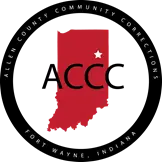The Joint Allen County Veterans Court of the Allen Circuit and Superior Courts will hold a graduation ceremony on Friday, Nov. 12, 2021, at 11:00 AM at the Allen County Courthouse Circuit Court Room. The Honorable Douglas Fahl, Whitley County Superior Court Judge, who also oversees the Whitley County Veterans Treatment Court, and Lieutenant Colonel of the United States Army Judge Advocate General’s Corps will be the Honored Keynote Speaker for the program’s eighth commencement ceremony.
This year’s ceremony commemorates 16 veterans’ completion of an intensive program designed to connect veterans suffering from substance abuse and/or mental health disorders with the benefits and treatment they have earned as a result of their service. “As the Judge of the Allen Circuit Court presiding over the Veteran’s Court Treatment program, I see firsthand veterans in legal troubles based on addiction, combat PTSD, and other mental health issues,” said Allen County Circuit Court Judge Wendy W. Davis. “I want to ensure the Court system rallies around them fairly to provide the proper support, treatment, and accountability to get them back on their feet. I am proud of my Veterans Circuit Court team that truly ‘cares for those who have borne the battle’ for our Country.”
The Allen County Joint Veterans Court is a judicially supervised court docket that reduces correctional costs, protects community safety and improves public welfare. Veterans Treatment Courts combine rigorous treatment and accountability for veterans facing incarceration due to charges stemming from substance abuse and/or mental health issues. “Our Veterans Treatment Courts provide structure, accountability, treatment and mentoring needed to help our justice-involved vets repair their lives. By keeping our veterans out of jail and prison, our Courts help save their lives, families, and futures, all while reducing costs to taxpayers,” added Allen County Superior Court Judge Frances C. Gull. “These Courts are a perfect example of our community coming together to serve our veterans and their families in their time of need. After all, veterans fought for our freedom…shouldn’t we fight for theirs?”
Veterans Treatment Courts expedite access to veteran-specific resources, including benefits and treatments earned through military service, by involving the U.S. Department of Veterans Affairs healthcare networks, the Veterans Benefits Administration, State Departments of Veterans Affairs, volunteer veteran mentors, and veterans and veterans’ family support organizations.

